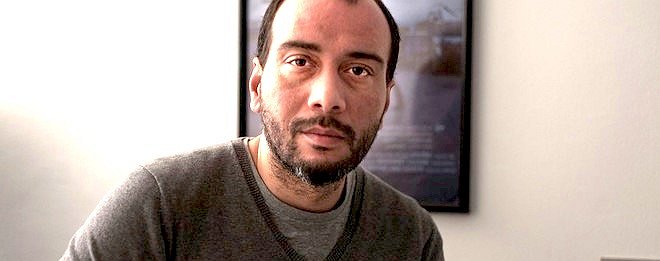Several small and independent media have emerged in the MENA over the last few years. But sustaining a media organisation when money is scarce and censorship is on the rise is a great challenge. We interviewed Malek Khadhraoui, the co-founder of Inkyfada, a Tunisian online magazine focussing on investigative and data journalism.
Ultimately, we wanted to become financially independent. We are currently trying to develop services and products that would form the core of our revenue
Inkyfada’s journey began with a group of journalists who were working on a collective blog called Nawaat, of which I was one of the founders. The blog was in opposition to the Ben Ali regime and focussed on documenting human rights abuses and political oppression. Everyone working on Nawaat was in exile. When we returned to Tunisia we formed an editorial team for Nawaat and three years after the revolution we decided to create a more professional website to better articulate the situation in Tunisia. Among our founders were IT experts and developers because we wanted a website that was a technically advanced site, and so Inkyfada was founded in 2014.
Our biggest challenge was how to fund our organisation. We were willing to work for a period of time without money in order to get started. But we had developers, designers and journalists in our group and we couldn’t ask people to remain volunteers for good, so thinking of a business model was very important. We didn’t want to depend on advertising or sponsorship, so we decided to opt for funding from organisations like IMS (International Media Support) and others while working on developing a revenue generating business model. Ultimately, we wanted to become financially independent. We are currently trying to develop services and products that would form the core of our revenue, but this will take some time. Right now, 50 per cent of our operations are self-funded from training and production services. The remaining 50 per cent comes from IMS and Open Society Foundations.
We offer trainings to other media organisations in investigative and data journalism, and we also develop websites and design apps. We also work as executive producers for international production companies who are working in Tunisia.
We are now in our fourth year, and our strategy is that by the fifth year we will have enough services and products to make us completely independent. So I would say that anyone setting up their own media organisation needs to make sure that they have a clear business plan. They must set up milestones and regularly evaluate themselves to make sure they reach those milestones.
One of the greatest difficulties is to find journalists who meet our standards and that has made it difficult to expand our team. This is something we had not considered at the beginning, and it means that we had to downscale the number of products and content we produce monthly. To solve this we have decided to collaborate more with journalism schools in Tunisia and train young journalists who can join us in future.
I wish someone had told us to invest a little more in human resources. As journalists, we think more about how to produce our content
We are currently a team of 12 individuals, supported by a pool of freelancers. Fortunately, we have not had any issues with the government. All of our problems have been organisational and financial. There is also the challenge of operation as a non-profit organisation in Tunisia, where all NGOs in the past had to be approved by the government. Now we have a new climate and a new law for NGOs and navigating this has been interesting and extremely positive, but it also has its challenges, especially because we have been making some revenue from our services which caused some issues.
Looking back, I wish someone had told us to invest a little more in human resources. As journalists, we think more about how to produce our content but we are also an organisation and we have to think about how we would run our operations. It would have made things easier to have an executive director and a financial director in our core team for day to day operations. I do hope that more people would start their own media organisations because we need new voices in the Arab world and there are many opportunities in this field.
Malek’s advice for journalists starting their own media organisations
- Think carefully what you will be offering in terms of editorial content, and be innovative
- Invest in your digital presence and make an effort to understand the new digital landscape
- Make sure you have a good web developer on your team or someone knowledgeable in this field so you are not at the mercy of a service provider
- Have a strong business plan so your organisation can eventually become financially independent
Photo source: Le Point Afrique
